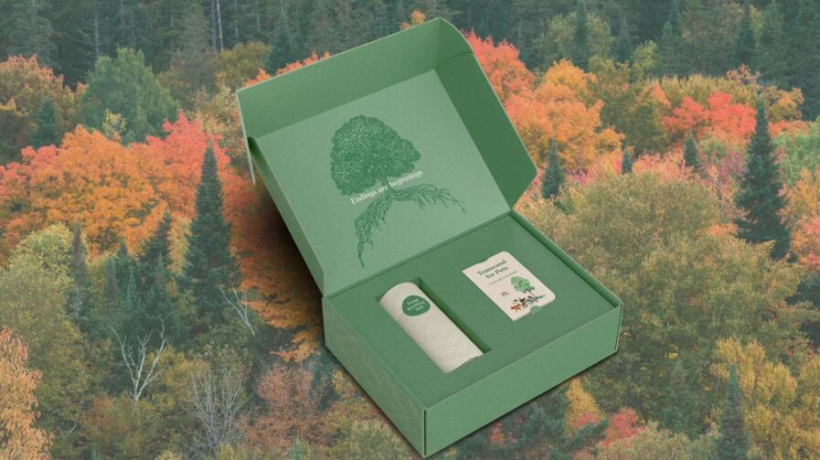Your environmental footprint doesn’t end when you die: Traditional burial uses toxic chemicals like formaldehyde along with steel and concrete, and the acres of grass in cemeteries use fertilizer and water. Cremation uses a large amount of energy. But a new startup called Transcend wants to rethink cemeteries as forests, with each body planted directly under a tree—becoming part of the tree as it decomposes.
For the company’s “tree burials,” planned near major cities across the U.S., a shallow grave is lined with wood chips or hay, the body is wrapped in a linen shroud and lowered inside, and then a mix of local soil, wood chips, and fungi is added on top. Finally, a young tree, two to four years old and native to each area, is planted on top. “As the body naturally decomposes, and oxygen is supporting that process, the mycelium is essentially acting as steroids for the roots of the tree to reach down and suck up all of the hyper-rich nutrients that it loves,” says founder and CEO Matthew Kochmann. Each tree will have a plaque, along with GPS coordinates for visiting relatives.
It’s one of a growing number of options for greener burials. In a handful of states, human composting is legal; Recompose, one startup that offers composting, opened near Seattle last year. Other memorial forests allow ashes to be buried under a tree, though that means that cremation is still necessary.
Kochmann first saw a design concept for a tree burial several years ago and loved the idea, but then realized that the designers weren’t pursuing it. “This is what happens at the bleeding edge of innovation that’s about to disrupt really antiquated industries—the first people who usually propose solutions are grad students and designers,” he says. “And then it takes business to kind of come around and be like, ‘oh, let’s figure out how to make that a reality.’”
He hadn’t planned to go into the end-of-life business, but had related experience, including financing land projects and, as an early employee at Uber, dealing with the regulatory and logistical challenges for a new type of business. He partnered with others to design the system, including experts in human decomposition and soil-tree interaction, and a former Apple product designer. (The filmmaker Darren Aronofsky, who used the idea of a tree planted on a grave in the 2006 film The Fountain, also became an adviser.)
When customers reserve a future burial, the startup will also plant 1,000 additional trees right away. “There’s a real opportunity not just to provide a better solution for individuals at the time of their death, but to create a model that accelerates their impact forward to today and getting a younger audience saying, ‘Yeah, I want to be a tree eventually, decades from now, but if I raise my hand and make that choice today, I can actually plant a bunch of trees today,’” Kochmann says. If the approach could radically scale up, with one in seven people globally choosing a tree burial, the system would end up planting 1.2 trillion trees.
The company plans to open the first sites, on deforested land within two miles from large cities, in 2023. Each new mini-forest will be a conservation easement, so it can never be developed. Right now, as Transcend continues to work through regulatory details—funeral and cemetery regulations are different in every state—it’s beginning to offer customers “founding memberships” that plant 100 trees and lock in the ability to reserve a future burial. Before the future cemeteries are open, it’s also selling a home kit that can be used to bury pets in backyards, complete with a biodegradable linen carrier for the pet, the company’s blend of fungi-enriched soil, and a “tree burial” guide.







